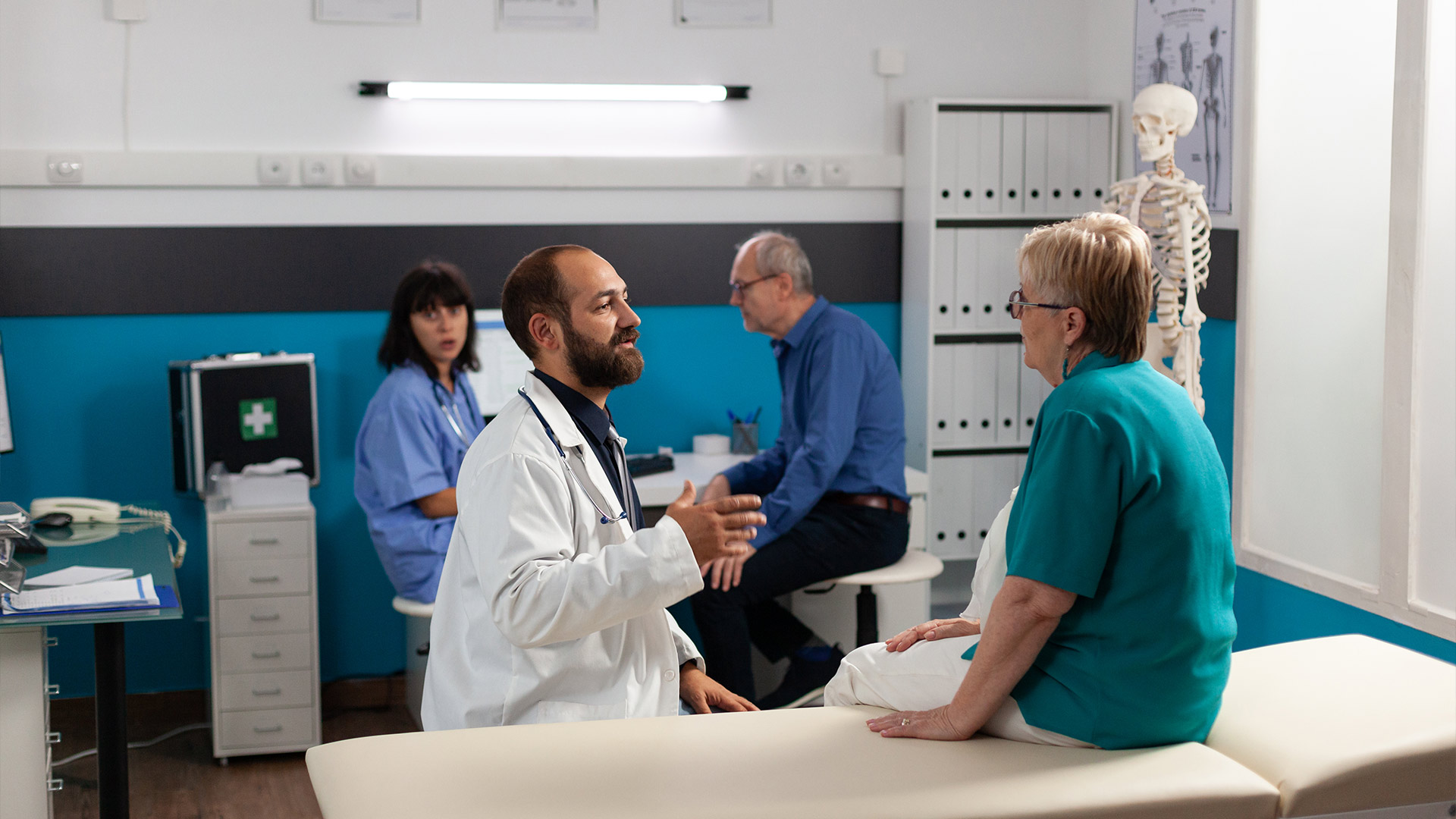The Power of Preventive Medicine in Slowing Down the Aging Process
Preventive medicine is one of the most powerful tools in slowing down the aging process.

Aging is an inevitable part of life, but what if we could slow it down? What if we could maintain our energy levels, keep our skin glowing, and stay mentally sharp well into our later years? While we can’t stop the aging process entirely, the field of preventive medicine is providing us with powerful tools to help slow down the effects of aging and improve our quality of life.
Preventive medicine focuses on proactively managing health to prevent the onset of diseases before they occur. By focusing on prevention rather than treatment, we can reduce the risks of many age-related conditions, such as heart disease, diabetes, cognitive decline, and even certain cancers. In this article, we’ll explore how preventive medicine can help slow down aging, and how you can incorporate preventive strategies into your life to enjoy a healthier, longer life.
What Is Preventive Medicine?
Preventive medicine is a branch of healthcare that focuses on preventing diseases and maintaining health rather than treating illnesses after they develop. The goal is to improve the quality of life by identifying risk factors and making lifestyle adjustments that reduce the likelihood of developing chronic diseases, which become more prevalent as we age.
Preventive medicine includes a wide range of practices, such as health screenings, vaccinations, lifestyle changes (e.g., diet and exercise), and early interventions that help to identify and manage potential health risks. By focusing on prevention, you can significantly reduce your risk of developing many common age-related conditions, allowing you to enjoy a healthier and more vibrant life.
How Preventive Medicine Slows Down the Aging Process
1. Reducing the Risk of Chronic Diseases
As we age, we become more susceptible to chronic diseases like heart disease, diabetes, and cancer. These conditions not only affect our quality of life but can also shorten our lifespan. Preventive medicine focuses on identifying the risk factors for these diseases early on, giving us the opportunity to make changes that can reduce their impact.
For example, blood pressure screenings can detect early signs of hypertension, a major risk factor for heart disease and stroke. Cholesterol checks can identify elevated levels of LDL (bad cholesterol), which can lead to plaque buildup in the arteries. By addressing these risk factors through lifestyle changes (like eating a heart-healthy diet, exercising, and taking prescribed medications), we can reduce the likelihood of developing serious cardiovascular conditions.
Real Example: Dr. Dean Ornish, a well-known physician and researcher, has demonstrated through his work that lifestyle changes such as a low-fat, plant-based diet, stress management, and exercise can reverse heart disease. His preventive approach has helped thousands of individuals maintain better cardiovascular health well into their later years.
2. Maintaining Healthy Weight and Metabolism
As we age, our metabolism naturally slows down, and many people experience weight gain or difficulty maintaining a healthy weight. This can be due to a combination of hormonal changes, muscle loss, and reduced physical activity. However, preventing weight gain and maintaining a healthy weight is crucial for slowing down the aging process.
Preventive medicine includes addressing metabolic health early on by promoting healthy eating, regular physical activity, and other habits that support a healthy metabolism. By managing weight and improving metabolic function, you can reduce the risk of developing type 2 diabetes, high blood pressure, and obesity-related cancers, all of which are more common as we age.
Real Example: Jennifer Lopez, who is known for her youthful energy and appearance, credits her balanced diet and regular fitness routine for helping her maintain a healthy weight and metabolism as she ages. She focuses on regular exercise, including strength training and cardio, to keep her body strong and youthful.
3. Improving Skin Health and Reducing Wrinkles
As we age, our skin loses collagen and elasticity, leading to wrinkles, sagging, and dry skin. While aging is inevitable, preventive medicine can help maintain skin health by addressing the factors that contribute to skin aging.
Regular skin screenings can help detect early signs of skin cancer or other skin conditions. Sunscreen use and reducing sun exposure can also prevent sun damage, which is a major cause of premature aging and wrinkles. Additionally, hydrating foods (like fruits and vegetables) and anti-aging skincare routines can help keep the skin nourished and protected.
Incorporating regular facials or using treatments like laser therapy, microdermabrasion, or chemical peels can also prevent and treat age-related skin changes, helping you maintain youthful, glowing skin.
Real Example: Christie Brinkley, a supermodel and wellness advocate, has made preventive skincare a key part of her routine. She emphasizes the importance of sun protection, staying hydrated, and using high-quality skincare products to keep her skin youthful and healthy.
4. Enhancing Cognitive Function and Mental Health
Another major concern as we age is the decline in cognitive function and the onset of conditions like Alzheimer’s and dementia. Preventive medicine can play a significant role in maintaining mental health by focusing on early detection and intervention.
Regular cognitive screenings can help identify early signs of cognitive decline, allowing for early interventions to slow down the progression of conditions like dementia. Preventive medicine also encourages mental exercises, such as reading, puzzles, or learning new skills, which can help keep the brain sharp.
In addition, stress management and mindfulness practices (like meditation and yoga) can reduce the impact of stress on the brain, improving mental clarity and emotional well-being. These practices can also help reduce the risk of depression and anxiety, which can often affect older adults.
Real Example: Dr. Daniel Amen, a leading psychiatrist and brain health expert, advocates for brain health screenings and lifestyle changes that support cognitive function, such as exercise, a healthy diet, and mental exercises. His approach emphasizes preventing cognitive decline by staying mentally active and emotionally balanced.
5. Supporting Joint Health and Mobility
Joint health is another crucial aspect of aging that can be addressed through preventive measures. Regular bone density tests and joint screenings can detect early signs of osteoporosis or arthritis, conditions that can affect mobility and quality of life as we age.
Preventive medicine for joint health includes incorporating weight-bearing exercises, flexibility training, and maintaining a healthy weight to prevent stress on the joints. Eating a diet rich in calcium, vitamin D, and omega-3 fatty acids can also support bone health and reduce the risk of joint inflammation.
Real Example: Jane Fonda, the actress and fitness advocate, has been a strong proponent of joint health for years. She emphasizes the importance of regular movement, stretching, and strength training to keep her joints healthy and mobile as she ages.
Prevention is Key to Aging Gracefully
Preventive medicine is one of the most powerful tools in slowing down the aging process. By focusing on early detection, lifestyle changes, and proactive health management, you can reduce the risk of age-related diseases, maintain your physical and mental health, and enjoy a longer, healthier life.
Regular health screenings, a balanced diet, exercise, stress management, and quality sleep are all essential components of a preventive approach to aging. By taking control of your health today, you’re investing in a vibrant, youthful future.
Remember, prevention is always better than cure. Start focusing on your long-term health now, and you’ll reap the benefits of a healthier, more vibrant life as you age.


